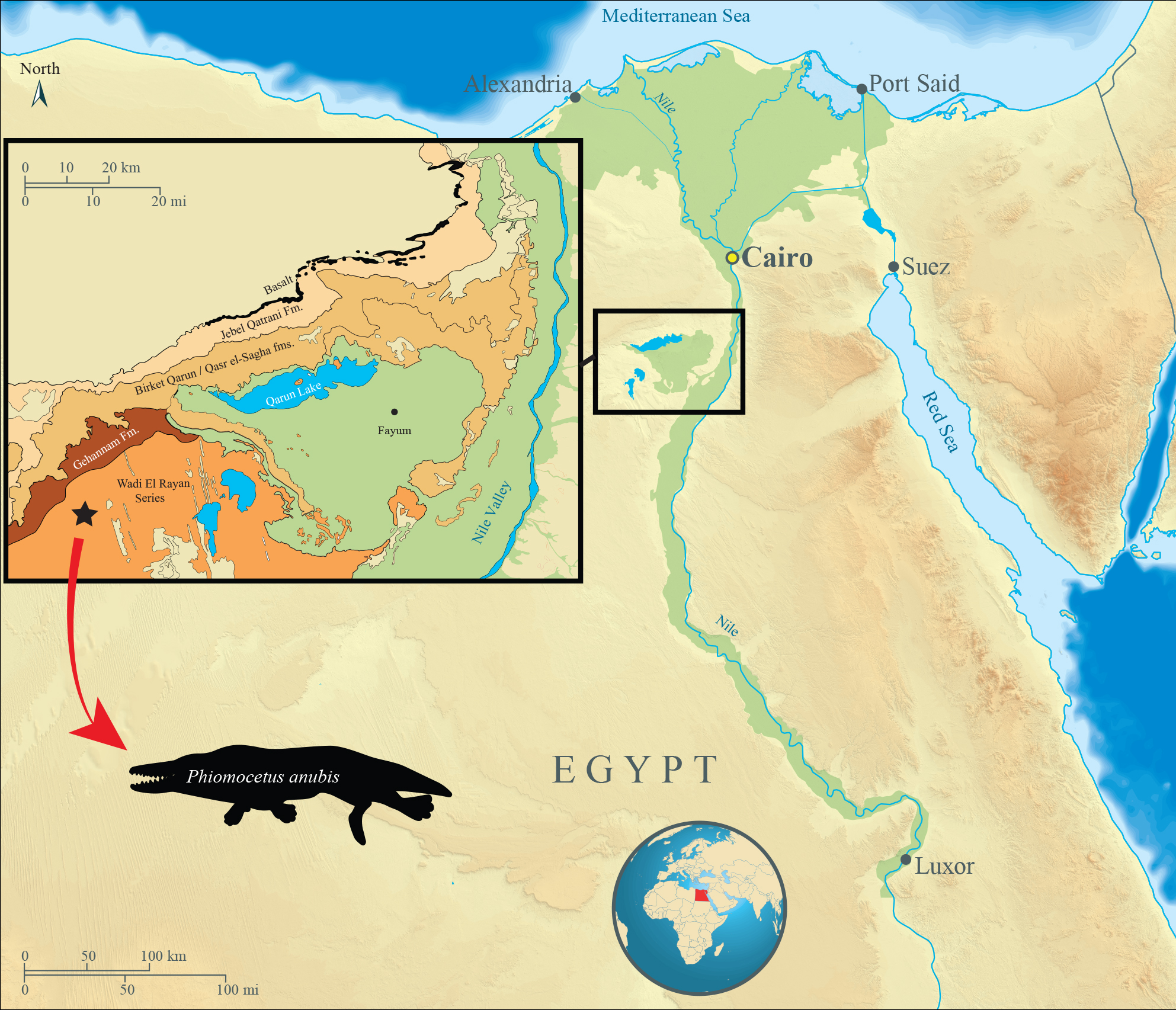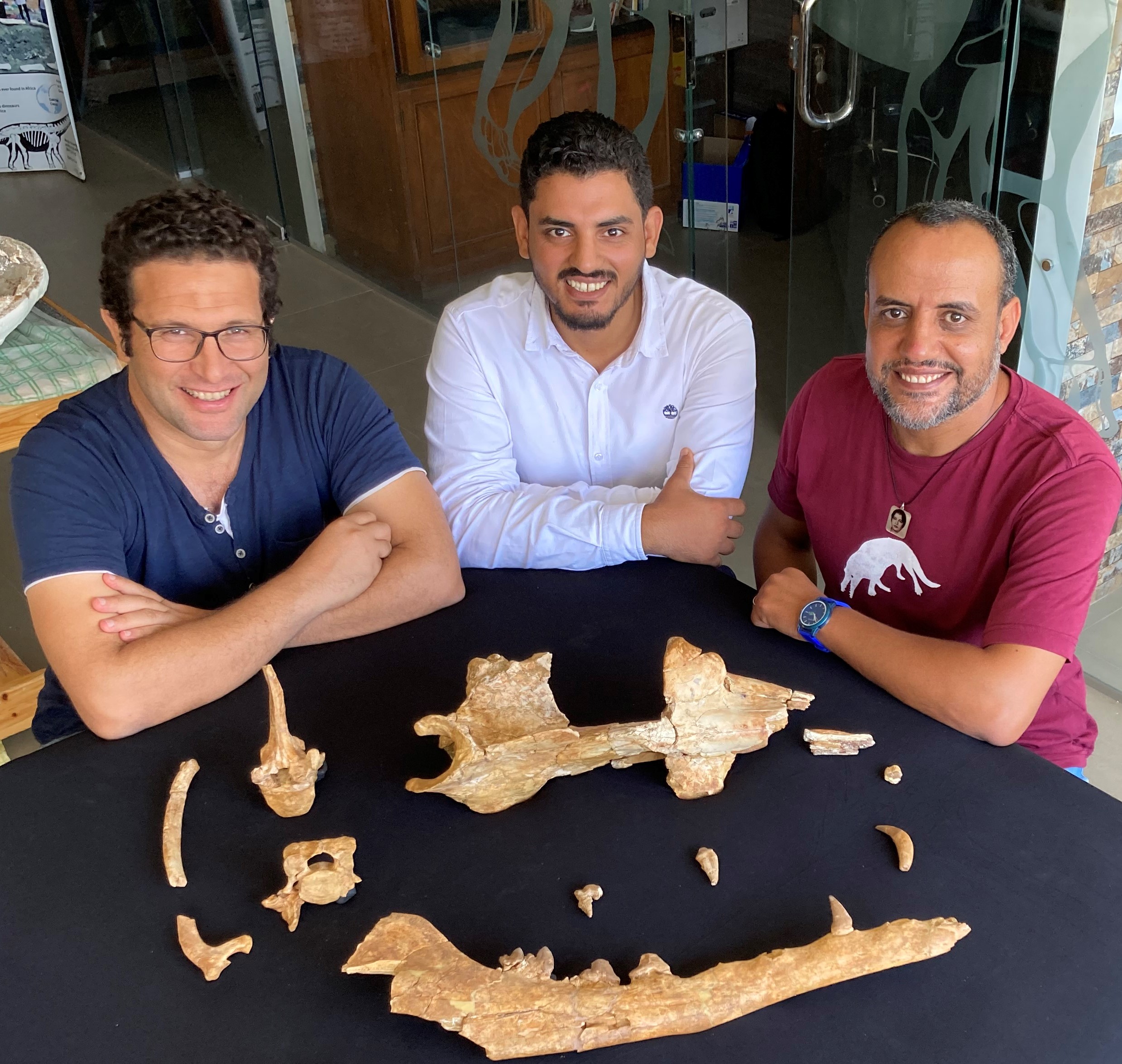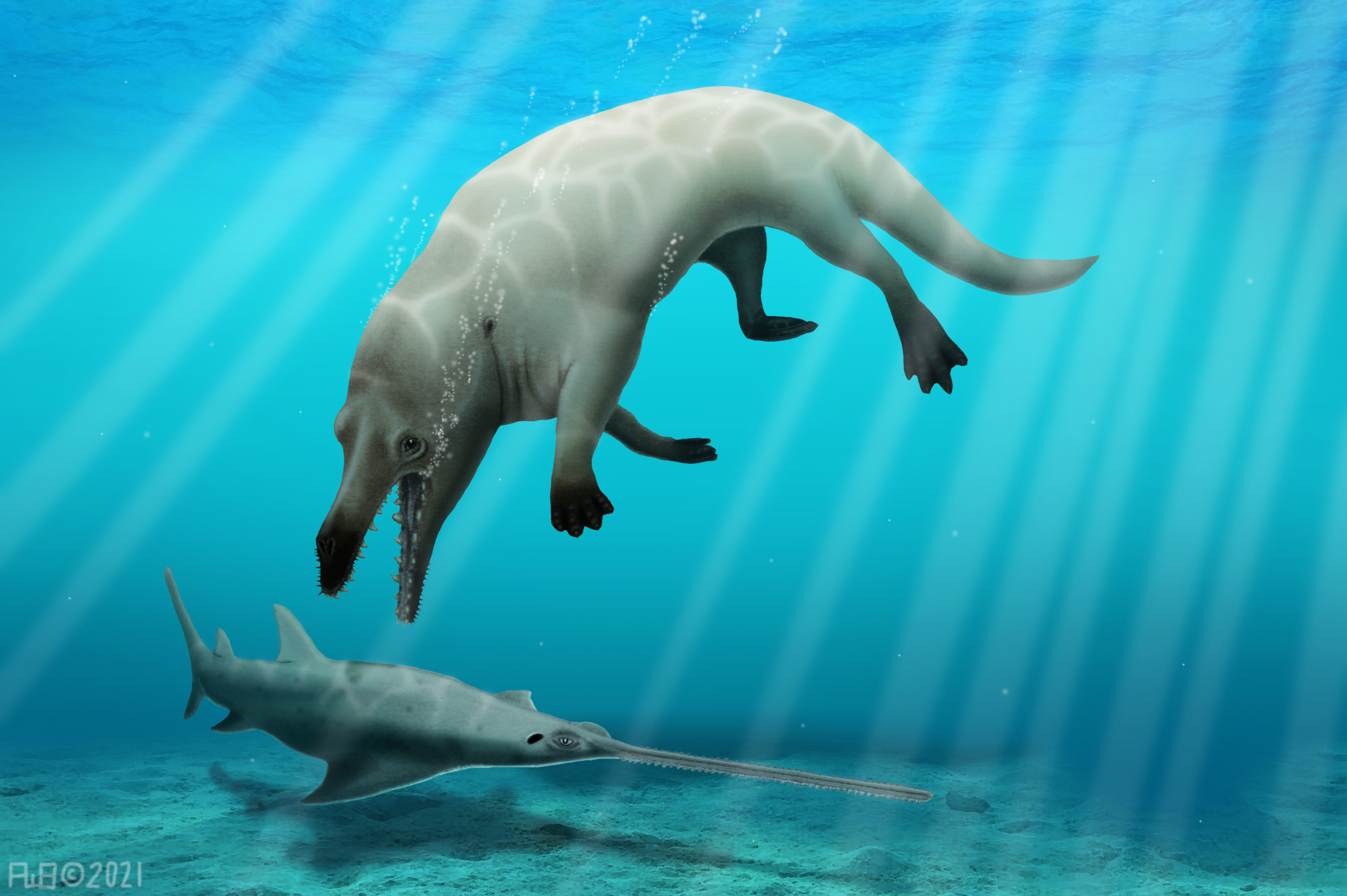Life reconstruction of the extinct protocetid whale Phiomicetus anubis, preying upon a sawfish. Illustration by Dr. Robert W. Boessenecker.
Understanding the evolution of the earliest whales is critical for tracing the story of the transition of whales from land to sea. Protocetidae is a group of extinct four-legged whales that falls right in the middle of that transition.
In recent years, insights from fossils have added details to this story, but the big picture of early whale evolution in Africa has largely remained a mystery. Nonetheless, in the Sahara Desert of Egypt, an international team led by Egyptian scientists has discovered a remarkable new amphibious whale, Phiomicetus anubis, from middle Eocene rocks, 43 million years old, that helps complete this picture.
“Phiomicetus anubis is a key new whale species, and a critical discovery for Egyptian and African paleontology” says Abdullah Gohar, a graduate student at Mansoura University and a member of Professor Hesham Sallam’s Lab. Gohar is the lead author of the paper published Wednesday, 25 August, in the journal Proceedings of the Royal Society B that names the new whale.
The new whale’s genus name honors the Fayum Depression and the species name refers to Anubis, the canine-headed Egyptian god associated with mummification and the afterlife. The fossils of Phiomicetus were unearthed by an expedition led by Mohamed Sameh of the Egyptian Environmental Affairs Agency, who is a co-author on the study. The specimen was subsequently moved to the Mansoura University Vertebrate Paleontology center to allow for its study.

Phiomicetus anubis is based on a partial skeleton, and reveals that it is the most basal (primitive) protocetid whale known from Africa. Moreover, Phiomicetus further shows that the protocetid whales had already diversified in their anatomy and feeding behavior, more than was previously thought, showing a capacity for more efficient oral processing of prey items than the normal protocetid condition, thereby allowing for a strong “raptorial” feeding style. Phiomicetus was likely a top predator in the community in which it lived, perhaps like a killer whale of today. Phiomicetus had an estimated body length of about 3 m and a body mass of about 600 kg, according to the researchers.
"It is tempting to think that transitional species are always going to be transitional in terms of their adaptations, but in reality, they’re often specialized for something; Phiomicetus highlights an early adaptation for feeding on large prey very shortly after its fish-eating ancestors became fully marine" says Robert Boessenecker of the College of Charleston in Charleston, South Carolina, USA, and a co-author on the study.
Another intriguing clue provided by the discovery is that the ribs of Phiomicetus show bite marks that suggest it was once bitten severely by sharks. Judging by the shape and the position of the bite marks, the researchers believe that they were made by small sharks that likely were not large enough to hunt Phiomicetus, and rather would have only been capable of scavenging on its carcass.

at Mansoura University Vertebrate Paleontology center. From left: Mohamed Sameh, Abdullah Gohar and Hesham Sallam. Credit: Abdullah Gohar
"There are many other unique early whales from Eocene aged rocks in the Fayum Depression, which is an amazing region to study the evolution of whales. With rocks covering an interval of about 12 million years, we can follow the evolutionary history of many lineages, and interesting discoveries range from semiaquatic crocodile-like whales to giant fully aquatic whales such as Basilosaurus isis” co-author Mohamed Sameh says.
“The fossil-bearing rocks of Egypt’s Western Desert hold limitless potential for revealing new details about the mysterious evolutionary transition from amphibious to fully aquatic whales. Egyptian vertebrate paleontologists are now poised to make remarkable discoveries on this topic in the coming years” said Erik Seiffert, Chair and Professor of Integrative Anatomical Sciences at the University of Southern California, and a co-author on the study.
Hesham Sallam, Professor of vertebrate paleontology at the American University in Cairo and the founder of Mansoura University Vertebrate Paleontology Center and a co-author on the study, stated that " Phiomicetus has not only added to our knowledge about the early whale transitional forms but has also raised new questions about the ancient ecosystems in which it lived, and has directed our new research vision toward finding answers to big questions such as the origin and coexistence of ancient whales in Egypt"
Original source
Gohar AS, Antar MS, Boessenecker RW, Sabry DA, El-Sayed S, Seiffert ER, Zalmout IS, Sallam HM. 2021 A new protocetid whale offers clues to biogeography and feeding ecology in early
cetacean evolution. Proc. R. Soc. B 20211368. https://doi.org/10.1098/rspb.2021.1368

